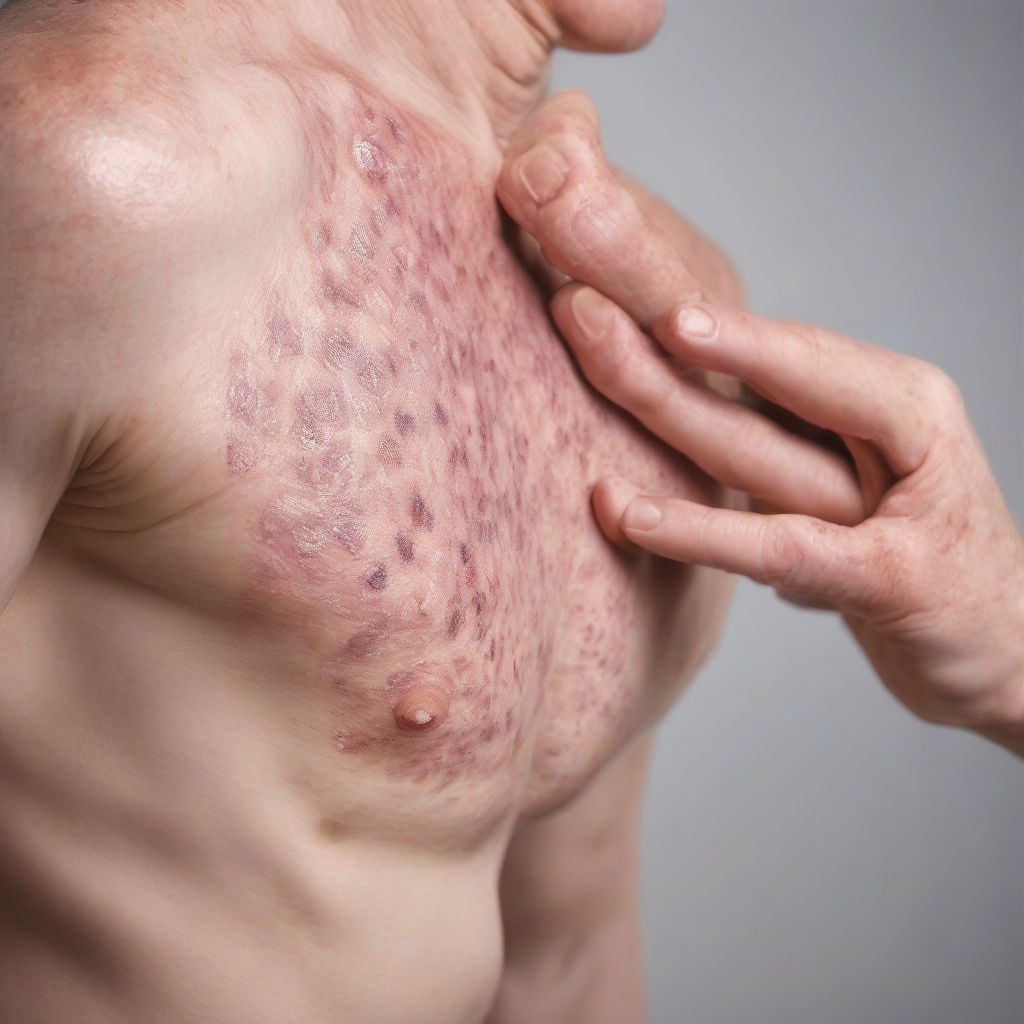Revolutionizing Psoriasis Care: A Comprehensive Guide to New Treatments
Psoriasis, a chronic autoimmune disease affecting millions, has long presented significant challenges in treatment. However, recent years have witnessed a remarkable surge in innovative therapies, offering renewed hope and improved quality of life for those living with this condition. This comprehensive guide explores the latest advancements in psoriasis treatment, detailing both established and emerging approaches.
Topical Treatments: Refining the Foundation
Topical treatments remain a cornerstone of psoriasis management, particularly for mild to moderate cases. Recent developments have focused on enhancing efficacy and minimizing side effects.
Enhanced Topical Corticosteroids
- Lower Potency Options: The emphasis is shifting towards lower-potency corticosteroids for long-term use, reducing the risk of skin thinning and other adverse effects associated with potent steroids.
- Improved Formulations: New formulations, such as foams and ointments with enhanced penetration, offer improved delivery and efficacy with less irritation.
- Combination Therapies: Combining corticosteroids with other topical agents, like calcineurin inhibitors or vitamin D analogs, can enhance therapeutic benefits and reduce the reliance on high-potency steroids.
Calcineurin Inhibitors: Targeted Action
- Tacrolimus and Pimecrolimus: These topical immunomodulators effectively reduce inflammation by inhibiting calcineurin, a key enzyme in the immune response. They are particularly useful for treating psoriasis in sensitive areas like the face and groin.
- Minimizing Side Effects: While generally well-tolerated, careful monitoring for potential side effects like skin burning or irritation is important.
Vitamin D Analogs: Supporting Skin Health
- Calcipotriene and Calcitriol: These vitamin D derivatives effectively slow down skin cell growth and reduce inflammation. They often are used in combination with other topical treatments.
- Improved Formulations: Newer formulations aim to enhance delivery and minimize irritation.
Other Topical Agents: Expanding the Arsenal
- Anthralin: This agent effectively reduces scaling and inflammation but can cause temporary staining of the skin.
- Salicylic Acid: A keratolytic agent that helps remove scales and improves penetration of other topical treatments.
- Coal Tar: A long-standing treatment with anti-inflammatory and anti-proliferative properties; newer formulations aim to minimize its odor and staining potential.
Systemic Therapies: Addressing Widespread Disease
For moderate to severe psoriasis that doesn’t respond adequately to topical treatments, systemic therapies are essential. Significant advancements have broadened the range of effective and safe options.
Biologics: Precision Targeting
- Tumor Necrosis Factor (TNF) Inhibitors: These medications, like adalimumab, etanercept, and infliximab, target TNF-alpha, a key inflammatory cytokine involved in psoriasis. They are highly effective for many patients but carry potential side effects like infections and injection site reactions.
- Interleukin (IL)-17 Inhibitors: Secukinumab, ixekizumab, and brodalumab specifically target IL-17, another crucial inflammatory cytokine. These have demonstrated remarkable efficacy, particularly in treating pustular psoriasis.
- Interleukin (IL)-23 Inhibitors: Guselkumab and ustekinumab block IL-23, a cytokine involved in psoriasis pathogenesis. These show strong efficacy with a relatively favorable safety profile.
- Integrin Inhibitors: Ustekinumab also targets the p40 subunit shared by IL-12 and IL-23, offering a broad-spectrum approach to inflammation.
- Biosimilar Biologics: Biosimilars are similar versions of established biologics, offering potentially cost-effective alternatives while maintaining comparable efficacy and safety.
Oral Medications: Convenient Options
- Apremilast: This phosphodiesterase-4 (PDE4) inhibitor modulates inflammation and is effective for many patients. Common side effects include diarrhea, nausea, and headache.
- Methotrexate: A long-standing and effective treatment, methotrexate is an immunosuppressant that effectively controls psoriasis but requires close monitoring for potential side effects like liver damage and bone marrow suppression.
- Cyclosporine: Another immunosuppressant, cyclosporine is effective but is generally reserved for short-term use due to the risk of kidney damage and hypertension.
Emerging Therapies: The Future of Psoriasis Treatment
Research continues to push the boundaries of psoriasis treatment, with several promising therapies entering clinical trials or showing early success.
Targeted Therapies: Precision Medicine
- JAK Inhibitors: These medications target Janus kinases (JAKs), enzymes involved in inflammatory signaling. Several JAK inhibitors, such as tofacitinib, upadacitinib, and abrocitinib, have been approved for psoriasis, offering excellent efficacy for many patients.
- S1P Receptor Modulators: These agents modulate the immune system by affecting the trafficking of lymphocytes. ozanimod, a S1P receptor modulator, shows promise for psoriasis treatment.
Phototherapy: Harnessing the Power of Light
- Narrowband UVB Phototherapy: A highly effective treatment, narrowband UVB phototherapy delivers targeted ultraviolet B light to affected areas, reducing inflammation and slowing skin cell growth. This can be combined with other treatments for enhanced results.
- Excimer Laser Therapy: This targeted phototherapy uses an excimer laser to deliver high-intensity UVB light to specific psoriatic lesions with minimal exposure to surrounding healthy skin. It is especially useful for localized psoriasis.
Lifestyle Modifications: Supporting Overall Health
While not a cure, lifestyle modifications can significantly improve psoriasis management and reduce symptom severity. This includes:
- Stress Management: Stress is a known trigger for psoriasis flares. Stress reduction techniques such as yoga, meditation, or deep breathing exercises can be beneficial.
- Diet: While no specific diet cures psoriasis, some individuals find that eliminating certain foods, like dairy or gluten, helps manage their symptoms. A healthy, balanced diet rich in fruits, vegetables, and omega-3 fatty acids is always recommended.
- Skin Care: Gentle skin care practices, including moisturizing and avoiding harsh soaps and irritants, help protect the skin barrier and reduce inflammation.
- Weight Management: Obesity can worsen psoriasis. Maintaining a healthy weight can improve overall health and reduce psoriasis severity.
Conclusion (Omitted as per instructions)
